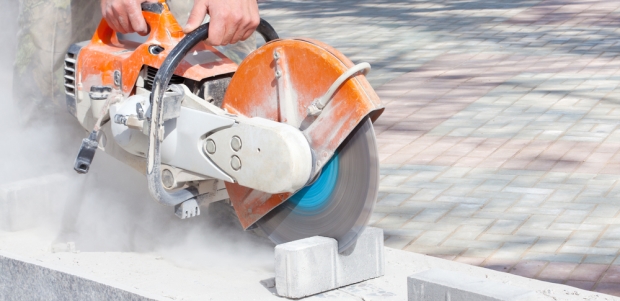
IOSH, BOHS, HSE Team Up for Silica Outreach
Their "Spotlight on Silica" presentations call attention to the hazards of respirable crystalline silica, which remains a potent hazard for millions of workers around the world.
Three high-profile British safety organizations -- the British Occupational Hygiene Society (BOHS), the Institution of Occupational Safety and Health (IOSH), and the Health and Safety Executive -- are joining forces on presentations about the dangers of silica exposure, IOSH announced May 16. Their presentation are titled "Working together to beat occupational cancer – spotlight on silica." IOSH offered new information about the hazards of respirable crystalline silica in a No Time to Lose campaign earlier this year to help employers develop prevention strategies.
The announcement said their new joint presentations will be delivered to members for the first time at the IOSH Midland Branch meeting June 2, just after the American Industrial Hygiene Association and the American Conference of Governmental Industrial Hygienists conclude this year's AIHce conference and expo (#AIHce2016) in Baltimore.
"The issue of work-related health is something that we have been championing in the branch for a number of years, and we've been on board with the No Time to Lose campaign since day one," said Midland Branch Chair Mohammed Basharat. "We were extremely keen to secure this new presentation for our members. As the oldest of IOSH's branches, and with us approaching our 65th anniversary next year, it is great that we will be the first in the network to jointly host the institution, the BOHS and the HSE in highlighting this important occupational health issue."
According to IOSH, research suggests that each year in Britain approximately 800 people die from lung cancer caused by prolonged exposure to RCS at work, and 900 new cases are being diagnosed annually. Worldwide, millions of employees are exposed to silica dust during their work.
"Silica dust exposure is a cross-industry issue. Tackling it, therefore, requires a cross-industry approach," said Shelley Frost, executive director of policy at IOSH. "We're delighted to be working with the BOHS and HSE on this initiative. Joined-up thinking has the potential to make a real difference in tackling this major occupational health issue. The talks aim to help inform, educate, and support in prevention and management practices. Whether you are an employer or employee, industry body or policy-maker, safety and health professional or occupational hygienist – we all have a part to play if we are to eliminate work-related cancer."
BOHS has more than 1,800 members, occupational hygienists, in the United Kingdom and other countries.